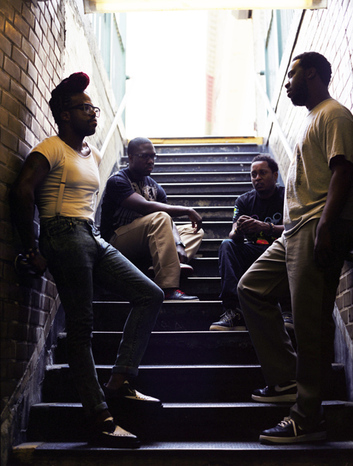
Robert Glasper Experiment (photo by Mike Schreiber)
"Oh...my...God. They're opening with A Love Supreme!" That was the only thing to be said. An hour and a half later, it was "They're closing with Smells Like Teen Spirit!" From Coltrane to Nirvana and all the beauty and intelligence of the music in between made for an experience unexpected.
The concert was at the Star Theater at 13 NW 6th Avenue in Portland and was produced by Soul'd Out Productions of Portland. Soul'd Out will also be hosting the Soul'd Out Music Festival in Portland, April 12-25, 2012. For more information, go to http://www.souldoutfestival.com
Bringing Robert Glasper Experiment to Portland was a profound choice and was welcomed warmly.
The band is extraordinary in their individual roles and talents but collectively, as has been said so many times by so many people, they have the ability to shatter any perceived barrier. Derrick Hodge is just masterful at the bass and soloed a stirring, even haunting, cover of Stevie Wonder's My Cherie Amour. Mark Colenberg was at the drum kit and formed a powerful rhythm section with Hodge. Colenberg is nobody's replacement but a tremendous force in his own right.
Casey Benjamin covers everything from keytar to alto sax to vocoder. I have to say it. The vocoder has always irritated me after one song but not with these guys. The vocoder was not used as a novelty or a filler but rather took on a life and meaning of its own under Benjamin's subtle employ. The use of the vocoder was so intoxicating that it was almost enough to make you miss how innovative he is with the alto sax. Stretching boundaries is the hallmark of this Experiment.
Robert Glasper himself is undeniably gifted and experimental and has a remarkable gift at transforming the sounds of one generation into meaningful interpretations for a following generation. Honestly, I thought no human in their right mind would ever try to do A Love Supreme after Santana and John McLaughlin did their guitar reworking of Coltrane's masterpiece. While the original has never lost it's relevance, Glasper has breathed fresh life and meaning into it.
With those great covers, comes a better surprise which is Glasper's own compositions including the new single from the newly released Black Radio album. The single is titled Ah, Yeah. It is moving and it is soulful and it is cerebral all at once. Below is a YouTube video of the Experiment performing with Christette Michele.
The concert was at the Star Theater at 13 NW 6th Avenue in Portland and was produced by Soul'd Out Productions of Portland. Soul'd Out will also be hosting the Soul'd Out Music Festival in Portland, April 12-25, 2012. For more information, go to http://www.souldoutfestival.com
Bringing Robert Glasper Experiment to Portland was a profound choice and was welcomed warmly.
The band is extraordinary in their individual roles and talents but collectively, as has been said so many times by so many people, they have the ability to shatter any perceived barrier. Derrick Hodge is just masterful at the bass and soloed a stirring, even haunting, cover of Stevie Wonder's My Cherie Amour. Mark Colenberg was at the drum kit and formed a powerful rhythm section with Hodge. Colenberg is nobody's replacement but a tremendous force in his own right.
Casey Benjamin covers everything from keytar to alto sax to vocoder. I have to say it. The vocoder has always irritated me after one song but not with these guys. The vocoder was not used as a novelty or a filler but rather took on a life and meaning of its own under Benjamin's subtle employ. The use of the vocoder was so intoxicating that it was almost enough to make you miss how innovative he is with the alto sax. Stretching boundaries is the hallmark of this Experiment.
Robert Glasper himself is undeniably gifted and experimental and has a remarkable gift at transforming the sounds of one generation into meaningful interpretations for a following generation. Honestly, I thought no human in their right mind would ever try to do A Love Supreme after Santana and John McLaughlin did their guitar reworking of Coltrane's masterpiece. While the original has never lost it's relevance, Glasper has breathed fresh life and meaning into it.
With those great covers, comes a better surprise which is Glasper's own compositions including the new single from the newly released Black Radio album. The single is titled Ah, Yeah. It is moving and it is soulful and it is cerebral all at once. Below is a YouTube video of the Experiment performing with Christette Michele.
Black Radio is the fourth album by Rogert Glasper. The album is pioneering. It is something that must be attentively heard and not just given passive listening. There are are touches of Donny Hathaway alongside Mongo Santamaria keeping Robert Glasper Experiment within sight of the R&B/Jazz lighthouse but the original compositions also see them venturing into uncharted sonic waters. It can be called jazz or R&B or hip-hop and it is all of those and yet... it is something beyond.
Robert Glasper has been called the next Herbie Hancock and I could not disagree more. I am reminded of the famous but maybe apocryphal story of George Gershwin asking to learn from Maurice Ravel (it could have been Arnold Shoenberg). Ravel's reply was, "Why should I make you a second-rate Ravel when you are already a first-rate Gershwin?" To compare Glasper to Hancock, however flattering it might seem, is to diminish Glasper's own unique understanding and what he brings to music. He brings his experiences and sensibilities, not Hancock's. More to the point, he brings himself.
And Robert Glasper himself is incredible.
Robert Glasper has been called the next Herbie Hancock and I could not disagree more. I am reminded of the famous but maybe apocryphal story of George Gershwin asking to learn from Maurice Ravel (it could have been Arnold Shoenberg). Ravel's reply was, "Why should I make you a second-rate Ravel when you are already a first-rate Gershwin?" To compare Glasper to Hancock, however flattering it might seem, is to diminish Glasper's own unique understanding and what he brings to music. He brings his experiences and sensibilities, not Hancock's. More to the point, he brings himself.
And Robert Glasper himself is incredible.
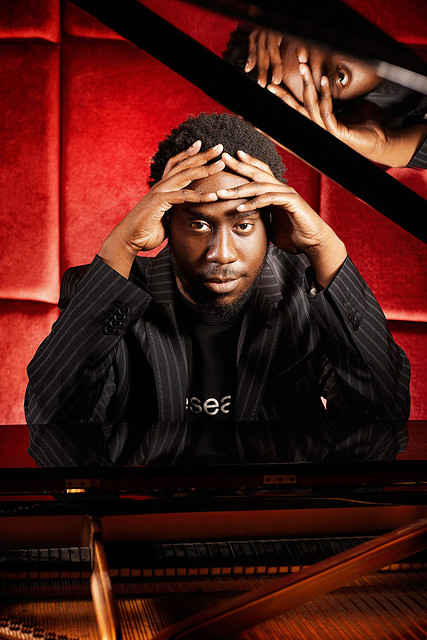
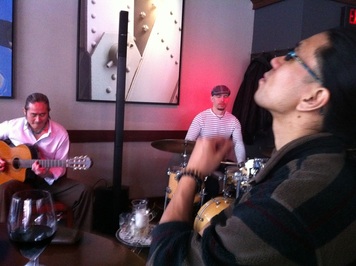
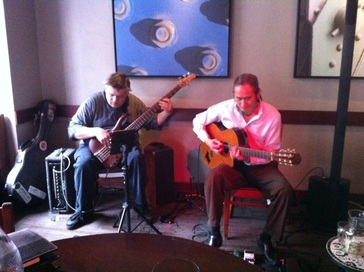
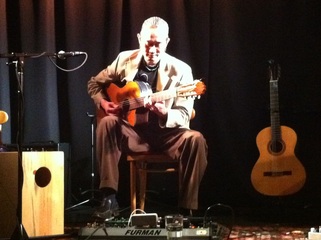
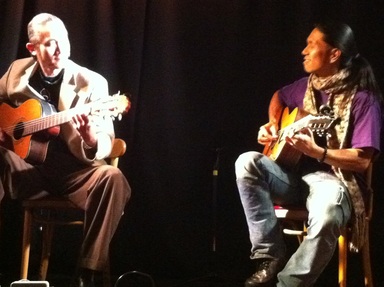
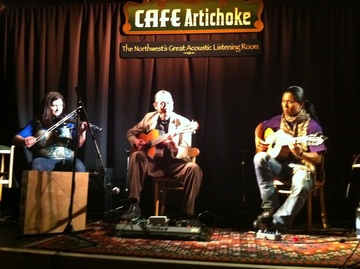
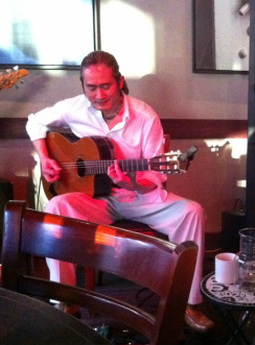
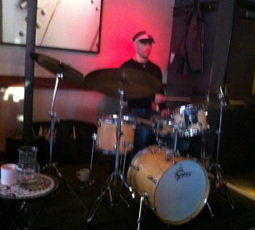
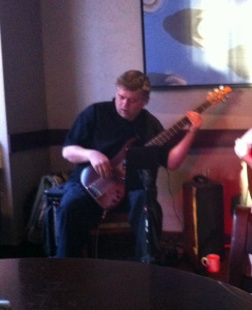
 RSS Feed
RSS Feed
